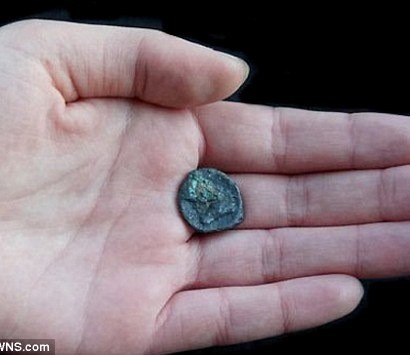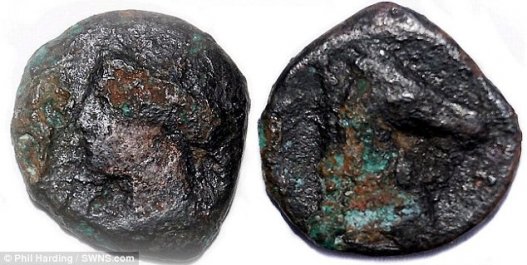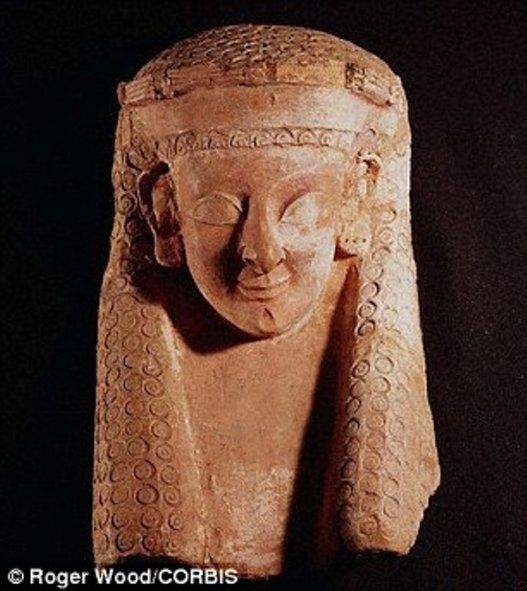Britain's ancient connection to Carthage: 2,300-year-old coin reveals Mediterranean trade route dating back to the Iron Age
 It may look like a misshapen disk of metal, but this coin is one of the oldest ever to be found in Britain. The tiny copper coin, which is smaller than a penny, dates from the Iron Age almost 2,300 years ago and suggests there were links between the south west of England and the Mediterranean. It was found in silt after the River Avon burst its banks between Bristol and Bath. On one side there is a horse’s head, while the other bears the image of the goddess Tanit, the chief deity of Carthage. Experts have dated the coin to between 300 BC and 264 BC and say it came from the Western Mediterranean - probably Sardinia or ancient Carthage. The find suggests that the village of Saltford, where it was found, was on a major trade route long before Roman times. It is believed there was a ford in the area, which made it the only place to cross the river Avon at the time. The coin is thought to be the oldest dateable evidence of human activity found in Saltford and the West of England. It suggests Iron Age links between the Mediterranean and the Bristol Channel, which the River Avon flows into around 15 miles (24km) away. Professor David Mattingly, an archaeologist and Roman historian at the University of Leicester said: ‘It’s really interesting to have a Carthaginian coin in Britain. ‘Suppose that coin was deposited close to its minting - at the time, there were no coins being used in Britain. It would have been quite alien to people. ‘We are very sure that horses were important at the time so that may have invoked a lot of interest back then. It’s a very interesting find.’ Phil Harding of the Saltford Environment Group, said that the coin’s significant because it is one of the oldest coins ever to be found in England. ‘Only eight of these have ever been found, always on ancient trade routes,’ he said. ‘We can’t believe it. We thought we would be writing the history of Saltford from the Roman times to now. |




















